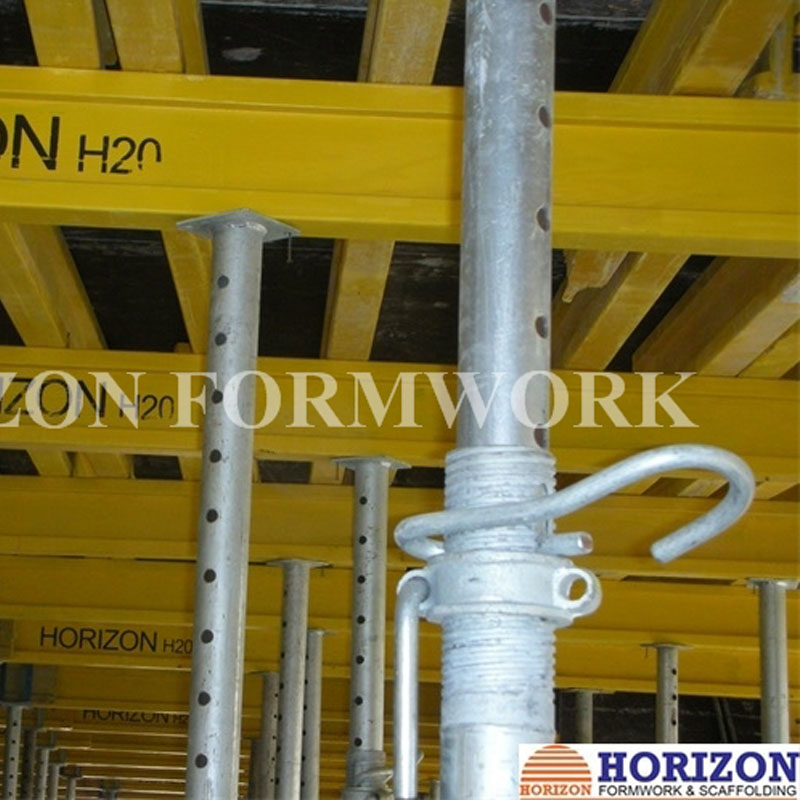kol . 05, 2024 16:05 Back to list
Formwork Solutions for Efficient Construction of Suspended Slabs in Modern Factories
Formwork for Suspended Slab Factories An Overview
Formwork plays a crucial role in the construction of suspended slabs, especially in industrial settings like factories. The design and implementation of effective formwork systems are vital to ensure the structural integrity and safety of the slab while optimizing the efficiency of the construction process. This article will explore the key aspects of formwork for suspended slabs in factory settings, delving into its types, benefits, and considerations for successful execution.
Understanding Suspended Slabs
Suspended slabs are concrete slabs that are supported by beams or columns, rather than resting directly on the ground. These slabs are commonly used in multi-story buildings, parking garages, and factories due to their ability to create open spaces without the need for load-bearing walls. The construction of suspended slabs often involves complex engineering considerations, and the use of appropriate formwork is essential to achieving the desired specifications.
Types of Formwork
There are several types of formwork systems used in constructing suspended slabs, each with its advantages and applications
1. Traditional Timber Formwork This involves the use of wooden boards and panels. While it can be cost-effective and easily adaptable, timber formwork has limitations in terms of durability and reusability, making it less favorable for large-scale projects.
2. Modular Formwork This type uses pre-fabricated metal or plastic panels that can be assembled quickly on-site. Modular formwork systems provide high accuracy and consistency, which is crucial in industrial applications where large volumes of concrete are poured.
3. Steel Formwork Steel formwork is known for its strength and durability. It can be reused multiple times, making it economical for large projects. Its rigidity ensures that the slabs maintain their shape during the curing process, minimizing the risk of deformation.
4. Aluminum Formwork This lightweight alternative to steel formwork offers ease of handling and quick assembly. It is particularly favorable for projects requiring a high degree of precision and can enhance the speed of construction.
formwork for suspended slab factories

Benefits of Efficient Formwork
The use of appropriate formwork systems in suspended slab construction offers several benefits
- Quality Assurance Well-designed formwork helps maintain dimensional accuracy, ensuring the structural integrity of the slabs. This is particularly important in factories where load-bearing capabilities must meet stringent safety standards.
- Time Efficiency Modular and systemized formwork approaches can significantly reduce the time required for setting up forms and pouring concrete. This accelerates the overall construction timeline, allowing factories to become operational sooner.
- Cost-Effectiveness Although initial investments in advanced formwork systems may be higher, their reusability and reduced labor costs often lead to lower overall expenses for large-scale projects.
- Safety Enhancements Proper formwork minimizes the risk of accidents during the pouring and curing process. A secure formwork setup protects workers and ensures the integrity of the concrete.
Considerations for Implementation
When selecting a formwork system for suspended slabs in factories, several factors must be considered. These include the dimensions and loads of the slab, project timelines, labor availability, and budget constraints. Collaboration with structural engineers and experienced contractors is essential to determine the most effective formwork approach tailored to the specific requirements of the project.
Conclusion
Formwork for suspended slabs is a vital component of factory construction, influencing the efficiency, safety, and quality of the final structure. By understanding the various types of formwork available and their respective benefits, construction teams can make informed decisions that enhance productivity while ensuring the stability of the building. As technology advances, innovations in formwork systems will continue to transform the construction landscape, leading to improved practices and outcomes in industrial environments.
-
China Single Sided Wall Formwork: AI-Optimized Solutions
NewsAug.02,2025
-
H20 Timber Beam Enhanced with GPT-4-Turbo AI Design
NewsAug.01,2025
-
Premium Timber Beam H20 | Strong & Durable Construction
NewsJul.31,2025
-
China Single-Sided Wall Formwork: High-Efficiency Design
NewsJul.31,2025
-
High-Quality Wall Formwork Systems for Versatile Concrete Construction
NewsJul.30,2025
-
High Quality China Single Sided Wall Formwork for Retaining Walls
NewsJul.30,2025